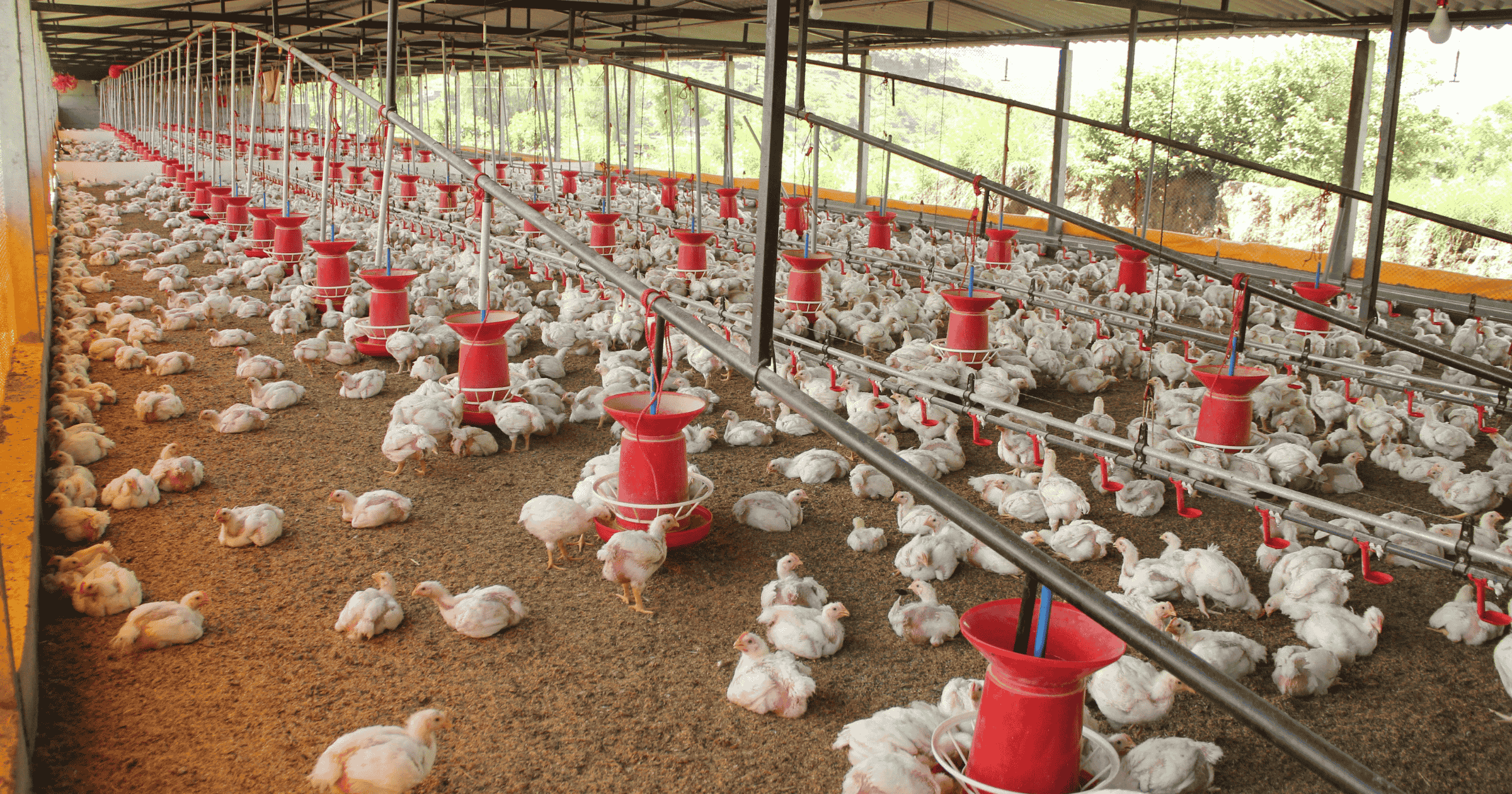
08 Apr Ethical Poultry Farming in Nigeria | Sustainable and Humane Chicken Farming Practices
Poultry farming is a significant part of Nigeria’s agricultural sector, providing essential protein sources for millions of people. However, with growing concerns about animal welfare, sustainability, and the environmental impact of conventional farming methods, there is an increasing push towards ethical poultry farming. Ethical poultry farming focuses on creating humane, sustainable conditions for chickens while producing high-quality eggs and meat.
In this article, we’ll explore the principles and practices of ethical poultry farming in Nigeria, including how it benefits animal welfare, human health, and the environment. By adopting ethical practices, Nigerian poultry farmers can meet the demand for better-quality food while contributing to a more sustainable and responsible farming industry.
What Is Ethical Poultry Farming?
Ethical poultry farming goes beyond traditional farming methods by ensuring that chickens are raised in environments that allow them to engage in natural behaviors. This type of farming focuses on the well-being of the animals, sustainable practices, and high standards of hygiene and care. Some of the key elements of ethical poultry farming include:
- Access to clean, open spaces: Chickens should be allowed to roam freely, with enough space to move, scratch, and engage in natural behaviors like dust bathing.
- Natural diet: Chickens raised ethically are fed a diet that is nutritious, free from harmful additives, and based on natural resources like grains, vegetation, and protein.
- Humane treatment: Ethical poultry farming ensures that chickens are treated with care and respect, minimizing stress and providing the proper care for their health and safety.
The goal of ethical poultry farming is to create a system where chickens thrive, while producing food that is safe, nutritious, and sustainable for the consumer.
Benefits of Ethical Poultry Farming in Nigeria
Nigeria’s poultry industry, like many others around the world, is evolving as more consumers become concerned with the ethics of food production. Adopting ethical farming practices in poultry farming can provide several advantages for farmers, consumers, and the environment:
1. Improved Animal Welfare
One of the most significant advantages of ethical poultry farming is the improved welfare of the chickens. In conventional factory farming, chickens are often confined to small cages or overcrowded environments, which can lead to stress, poor health, and behavioral issues. Ethical poultry farming, on the other hand, ensures that chickens have access to:
- Adequate space to move around and engage in natural behaviors like pecking, scratching, and dust bathing.
- Clean, comfortable living conditions, free from overcrowding and stressors.
- Better health care, with regular monitoring and veterinary support.
By raising chickens in conditions that allow them to express their natural instincts, ethical poultry farming promotes their physical and mental well-being, which leads to healthier animals and better-quality products.
2. Higher Quality Eggs and Meat
Ethical poultry farming leads to healthier chickens, which in turn produce better-quality eggs and meat. Chickens that are raised in free-range or pasture-based systems, with access to a more natural diet, tend to have:
- More nutritious eggs: Pasture-raised eggs are higher in omega-3 fatty acids, vitamins, and antioxidants, offering a healthier option for consumers.
- Better flavor and texture: Eggs and meat from ethically raised chickens are often described as more flavorful and tender due to the better living conditions and diet of the animals.
- Fewer chemicals and hormones: Ethical poultry farms avoid the use of unnecessary antibiotics or growth hormones, resulting in cleaner, healthier food for consumers.
Consumers are increasingly looking for high-quality, natural, and chemical-free products, making ethical poultry farming an attractive option for those seeking healthier, more sustainable food.
3. Environmental Sustainability
Ethical poultry farming is inherently more sustainable than conventional farming methods. By focusing on natural systems and resource conservation, ethical poultry farmers in Nigeria can contribute to the environmental sustainability of the agriculture sector. Here’s how:
- Waste management: Ethical poultry systems often use natural fertilizers like chicken manure to enrich the soil, reducing the need for chemical fertilizers.
- Lower carbon footprint: Because ethical poultry farms often focus on local sourcing of feed and rely less on industrial farming inputs, they tend to have a smaller carbon footprint compared to factory farms.
- Biodiversity: Chickens raised on open pastures contribute to soil health by consuming weeds and insects, helping maintain a more biodiverse ecosystem on the farm.
Ethical poultry farming reduces the environmental impact of poultry production while promoting better land management and healthier ecosystems.
4. Increased Consumer Trust and Market Demand
As consumers become more aware of the environmental and ethical concerns surrounding food production, they are seeking products that align with their values. Ethical poultry farming appeals to a growing market of conscious consumers who want to support businesses that prioritize sustainability, animal welfare, and health.
For Nigerian poultry farmers, this shift in consumer behavior presents a significant opportunity. By adopting ethical practices and ensuring transparency about how their chickens are raised, farmers can attract loyal customers who value quality and sustainability. Furthermore, as the demand for ethical food products grows, farmers can position themselves as leaders in the market, catering to a discerning consumer base.
Key Principles of Ethical Poultry Farming in Nigeria
To implement ethical poultry farming practices successfully, Nigerian farmers need to focus on several key principles. These principles not only help ensure the welfare of the chickens but also contribute to the overall success and sustainability of the farm.
1. Free-Range or Pasture-Based Systems
One of the cornerstones of ethical poultry farming is providing hens with access to outdoor spaces. This allows chickens to engage in natural behaviors such as foraging, dust bathing, and socializing, leading to healthier and happier animals. In Nigeria, where the climate is ideal for outdoor farming, free-range or pasture-based systems are a great way to meet both animal welfare and environmental sustainability goals.
2. Natural and Nutritious Feed
Ethical poultry farms prioritize natural diets for their chickens, avoiding artificial additives and low-quality feed. A healthy diet, which may include grains, vegetables, and insects, supports the chickens’ overall well-being and contributes to the nutritional value of the eggs and meat they produce. Local sourcing of feed can further reduce the environmental impact of poultry farming in Nigeria.
3. Health and Veterinary Care
Maintaining the health of poultry is essential for both the well-being of the animals and the safety of the consumers. Ethical poultry farmers should provide regular health checks and access to veterinary care, ensuring that their chickens are free from disease and are treated promptly if they fall ill. This can prevent the need for antibiotics and hormones, resulting in cleaner, more natural products.
4. Humane Slaughtering Practices
For farmers who also raise chickens for meat production, humane slaughtering practices are essential to maintaining the ethical standards of the farm. This involves minimizing stress during the slaughtering process and ensuring that the chickens are treated humanely at every stage.
Challenges of Ethical Poultry Farming in Nigeria
While ethical poultry farming offers numerous benefits, it also comes with certain challenges that Nigerian farmers must address. Some of these challenges include:
- Higher costs: Ethical poultry farming often requires more space, higher-quality feed, and additional resources, which can lead to higher production costs.
- Limited infrastructure: The lack of adequate infrastructure for small-scale ethical farming operations can make it challenging for farmers to scale their businesses.
- Consumer education: Many consumers may not be fully aware of the benefits of ethical poultry farming and may be reluctant to pay a premium for ethically produced eggs and meat.
However, with the right education, support, and investment, these challenges can be overcome, and ethical poultry farming can become a sustainable and profitable industry in Nigeria.
Conclusion: The Future of Ethical Poultry Farming in Nigeria
As Nigerian consumers become more aware of the importance of ethical food production, ethical poultry farming is likely to become a major part of the country’s agricultural future. By focusing on animal welfare, sustainable practices, and high-quality products, ethical poultry farmers can not only meet the demands of conscious consumers but also contribute to a healthier, more sustainable farming industry.
The benefits of ethical poultry farming are clear: healthier animals, better-quality products, a reduced environmental impact, and a stronger connection with consumers. It’s time for Nigeria’s poultry industry to embrace sustainable, ethical practices and lead the way in responsible food production.
Do you support ethical poultry farming? Share your thoughts in the comments below!
Recent posts
- How to Make Akara and Moi Moi with Farm Eggs | Delicious Nigerian Recipes
- How to Make Perfect Omelettes with Farm Eggs | Easy, Delicious Recipe
- Easy Egg Salad Recipes with Farm Fresh Eggs | Delicious & Nutritious
- Deviled Eggs with Local Nigerian Ingredients | Easy Recipe
- Delicious Nigerian Dishes Made with Eggs | Tasty Egg Recipes
Your cart
Your cart is currently empty!








No Comments